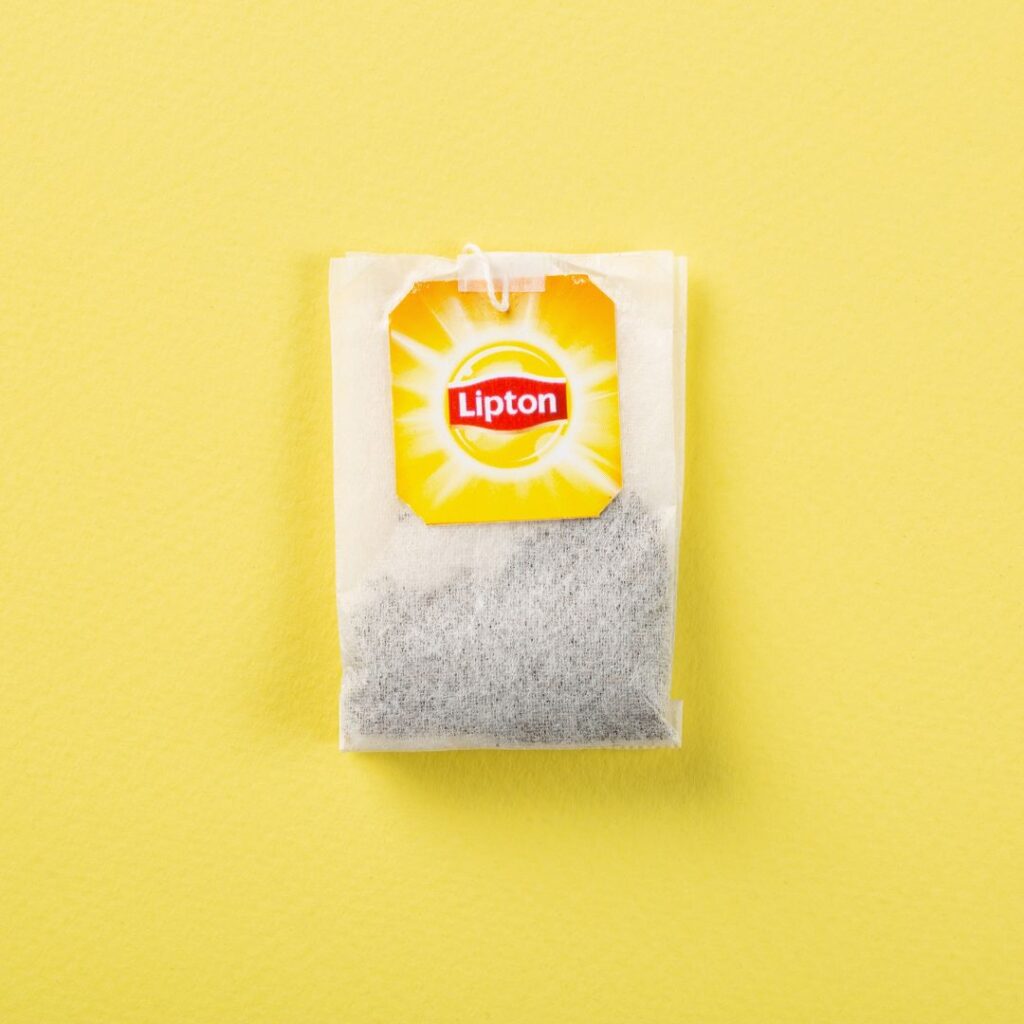Lipton, one of the world’s most iconic tea brands, owes much of its success to its innovative and adaptive marketing strategy. Over the years, Lipton has built a global reputation by embracing a balance of tradition and modernity, appealing to diverse markets, and aligning its brand with health, sustainability, and convenience. This article explores the unique elements of Lipton’s marketing strategy that have allowed it to maintain its position as a leader in the global tea industry.
1. Establishing a Universal Brand Identity
“A Cup for Every Moment”
Lipton’s marketing revolves around its core message: tea is a drink for every occasion and every person. By positioning its products as versatile and inclusive, Lipton has created a universal appeal that transcends cultural and regional boundaries.
The Power of the Yellow Label
Lipton’s bright yellow packaging is a cornerstone of its branding. The color symbolizes warmth, energy, and positivity, making it instantly recognizable on store shelves. This consistent visual identity reinforces brand recall and loyalty.
2. Emphasizing Affordability and Accessibility
Making Tea for Everyone
From its inception, Lipton has been committed to making tea accessible to the masses. The brand’s marketing campaigns often highlight affordability without compromising quality, positioning Lipton as a reliable choice for families and individuals across socioeconomic groups.
Wide Product Range
Lipton caters to a broad spectrum of consumers, from budget-conscious buyers to those seeking premium tea experiences. Its diverse offerings include:
- Standard Black and Green Teas: Everyday staples for home and office.
- Herbal Blends and Wellness Teas: Targeting health-conscious consumers.
- Premium Loose Leaf and Pyramid Tea Bags: Appealing to connoisseurs and upscale markets.
3. Innovative Product Marketing
Ready-to-Drink Iced Tea
Lipton transformed the tea market by venturing into ready-to-drink (RTD) iced tea. Through a joint venture with PepsiCo, Lipton developed a global distribution network for its iced tea products. Marketing campaigns emphasize convenience and refreshment, targeting younger, on-the-go consumers.
Health and Wellness
With growing interest in wellness, Lipton has pivoted to highlight the health benefits of tea. Campaigns emphasize antioxidants, hydration, and natural ingredients, appealing to consumers looking for functional beverages.
4. Leveraging Digital Marketing
Social Media Engagement
Lipton has embraced digital platforms like Instagram, Facebook, and Twitter to connect with its audience. Its social media campaigns feature:
- Interactive Content: Polls, quizzes, and recipe videos that engage followers.
- Seasonal Promotions: Posts highlighting iced teas in summer or warm herbal blends in winter.
- Hashtag Campaigns: Encouraging user-generated content with tags like #LiptonMoments.
Collaborations with Influencers
Lipton partners with food bloggers, fitness influencers, and wellness advocates to promote its products authentically. These collaborations help the brand reach niche audiences and build trust among potential customers.
5. Sustainability as a Core Message
Sustainable Sourcing
Lipton markets its commitment to sustainability by sourcing tea from Rainforest Alliance Certified farms. This ensures ethical and environmentally friendly practices, which resonate with modern, eco-conscious consumers.
Packaging Innovation
Lipton emphasizes its efforts to reduce plastic usage and develop recyclable packaging. Marketing these initiatives helps align the brand with consumer values while reinforcing its leadership in responsible business practices.
6. Localized Marketing for Diverse Markets
Cultural Adaptation
Lipton’s global footprint extends to over 150 countries, and its marketing strategy is tailored to suit local tastes and customs. Examples include:
- Spicy Chai Campaigns in India: Catering to traditional tea preferences.
- Iced Tea Promotions in the U.S.: Highlighting flavors like lemon and peach.
- Green Tea Marketing in Asia: Aligning with cultural and health trends.
Localized Celebrity Endorsements
Lipton partners with regional celebrities and influencers to enhance its appeal. These endorsements provide cultural relevance and help the brand connect with local audiences.
7. Emotional Storytelling and Lifestyle Branding
Tea as an Emotional Connector
Lipton’s campaigns often portray tea as a drink that brings people together. Whether it’s a comforting cup shared between friends or a refreshing iced tea on a summer day, Lipton focuses on creating emotional resonance with its audience.
Lifestyle Positioning
Lipton’s marketing highlights tea as part of a balanced, modern lifestyle. Ads frequently depict active, health-conscious individuals enjoying Lipton products, making the brand synonymous with vitality and positivity.
8. Strategic Retail and Shelf Placement
Dominating Retail Visibility
Lipton ensures its products are prominently displayed in supermarkets, convenience stores, and online platforms. Eye-catching packaging, coupled with regular promotions, secures its place as a top choice for consumers.
E-Commerce Expansion
With the rise of online shopping, Lipton has invested in optimizing its presence on e-commerce platforms like Amazon. Digital ads and product bundles make it easy for consumers to discover and purchase Lipton teas online.
9. Event Sponsorships and Collaborations
Sports and Wellness Events
Lipton sponsors marathons, fitness expos, and wellness fairs to position itself as a brand aligned with health and hydration. Iced tea variants, in particular, are promoted as the perfect post-workout refreshment.
Collaborations with Chefs and Restaurants
Lipton partners with culinary experts to showcase how its teas can be incorporated into recipes, from iced tea cocktails to tea-infused desserts. These collaborations elevate Lipton’s image as a versatile and premium brand.
10. Measuring Impact and Staying Ahead
Consumer Insights
Lipton invests in market research to understand changing consumer preferences. Feedback from focus groups, surveys, and digital analytics informs new product development and marketing strategies.
Competitor Analysis
By staying aware of competitors like Twinings, Tetley, and boutique tea brands, Lipton continuously refines its approach to maintain its competitive edge.
Lipton’s marketing strategy is a testament to the power of adaptability, innovation, and consumer-centric branding. By focusing on affordability, health benefits, sustainability, and localized appeal, Lipton has remained a leader in the global tea industry for decades. As consumer trends continue to evolve, Lipton’s commitment to meeting diverse needs ensures its enduring success in the competitive beverage market.




